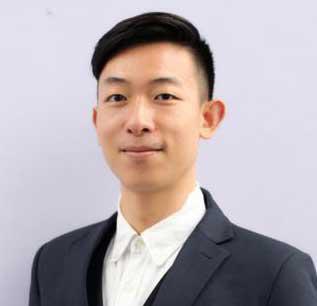Unlocking new career paths with data skills: A spotlight interview with Annarita Palumbo
Annarita Palumbo embarked on her career with the United Nations in 2006 as a Systems Technician with the United Nations International Computing Centre (UNICC) in Italy. After a few years, Annarita transitioned from national to international staff. Currently, she works in the Geospatial, Information and Telecommunications Technology Service at the United Nations Interim Force in Lebanon. Her role involves extensive data analysis and reporting.
In this spotlight interview with UNSSC’s Itziar Arispe Ruiz de Gauna, Annarita discussed the impact of the UN Data Analytics Professional Certificate on her work and its influence on her professional path.
Itziar: Why was it important for you to pursue the UN Data Analytics Professional Certificate? What did you hope to gain from the learning?
Annarita: Attending the course has been crucial for me because it marks a deliberate shift in my career direction toward a more analytical role rather than continuing in my current technical capacity. This training has been instrumental in allowing me to realign my professional trajectory accordingly. The course not only equipped me with the fundamental understanding necessary for this transition but also laid a strong foundation. In my current position, where generating reports is a key responsibility, the analytical skills honed during the course are indispensable. The breadth of subjects covered provides a robust base that's beneficial even outside an immediate analytical role. It equips you with essential skills for future responsibilities and greatly enhances your abilities in analysis, visualization, and in the methods of data collection and cleansing.
Itziar: What are some of the most memorable parts of your learning experience with UNSSC?
Annarita: I'll never forget my first experience; it was profoundly impactful.
My first experience with the course was unforgettable. One particularly impactful moment was Jaume's lesson on the evolution of conflict, which provided crucial insights given the challenging phase of the mission I'm involved with. The lesson clarified how to approach conflict analysis analytically, and it was immensely helpful considering the current circumstances. Another unforgettable moment was winning the prize as an inspirational speaker, which was unexpected and brought me great joy. Being naturally shy, I was initially reluctant to ask questions during the course, fearing they might be inappropriate. Knowing the importance of maximizing my course experience, I gathered the courage to voice my queries. Winning the prize was a realization that my inquiries not only aided my understanding but were also beneficial to my peers.
Itziar: An essential part of this learning offering is that you are able to use what you have learned practically. Can you share with us your two key takeaways from the On-Job-Practice?
Annarita: I opted for the predictive analytics professional track to delve into a new area of interest. The course was challenging, but the instructors were exceptional, guiding us through the complex content. Despite most of us lacking experience in this domain, the supportive setup allowed us to address our uncertainties directly during discussions and practices. Mentors simplified the learning journey, making the challenging content more accessible. I gained valuable insight into using data analysis tools and look forward to integrating new tools like BigML for predictive analytics in my future career. The course emphasized the importance of an analytical mindset for dissecting and tackling projects, teaching us to segment analysis into phases for detailed and critical examination of results. Also, once a result is obtained, it should be updated and refined as fresh data is obtained.
Itziar: Tell us about your experience during the peer reviewing and group activities in the programme
Annarita: The group work component of the course was crucial for me. During practical sessions, we had to tackle exercises in small groups of four or five. This setup was essential for exchanging and refining ideas with others, which was particularly meaningful for me as someone more introverted. Interacting and sharing experiences in this way not only helped me realize that my approaches and opinions were valued but also showed that I could contribute effectively to a team. Beyond the classroom activities, the collaboration extended. I've been in touch with fellow students outside of the course, and we've continued to support each other professionally. This networking aspect has turned out to be an invaluable part of the learning experience, creating connections that last beyond the immediate educational context.

